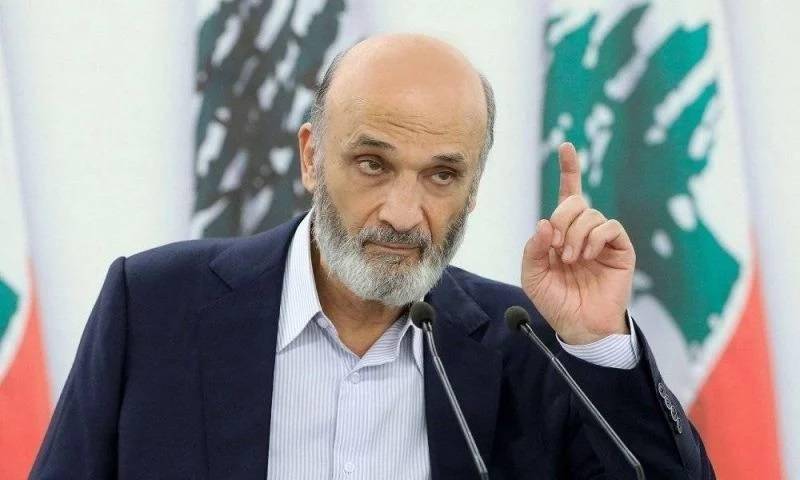
Lebanese Forces (LF) leader Samir Geagea. (Credit: NNA/File Photo)
BEIRUT — Lebanese Forces (LF) leader Samir Geagea said on Thursday that "22 MPs can lead to the election" of a president, implying a vote in favor of MP Michel Moawad, after a third parliamentary session where lawmakers again failed to elect a new head of state, while the mandate of the current president, Michel Aoun, expires on Oct. 31.
"Michel Moawad got 44 votes and 22 MPs sacrificed their votes and blocked the session," Geagea said in a television interview on local channel MTV. The MP from Zgharta won 42 votes during Thursday's session, but the LF leader counted the votes of Chawki Daccache (LF) and Ihab Matar (Independent), who voted last time for Moawad but who were absent from today's session.
As for the 22 MPs, Geagea referred to the 17 MPs who voted for a "new Lebanon," the four MPs whose votes were canceled, and the one who voted in favor of candidate Milad Abou Malhab.
"The 22 MPs can make this vote succeed, and we are waiting for their proposals," Geagea insisted. The LF leader claimed that if these 22 votes are added to the 44 votes for Moawad, the latter could be elected with 66 votes, one vote more than the majority required during the second round of a presidential election vote.
"We have tried to coordinate with these 22 MPs, but they don't want any agreement around a name," the LF leader added.
Geagea also took the opportunity to tackle "the opposing camp," referring to that of Hezbollah and its ally the Free Patriotic Movement.
"The Hezbollah and FPM camp wants the presidential vacuum, because they have no ready candidate," he said. "The camp that will bear the responsibility of the presidential vacuum is the moumanaa [pro-Syrian former March 8 camp]. The one who wants consensus must start his negotiations months in advance," Geagea added.
Samir Geagea has been calling for the election of a president who is able to stand up against Hezbollah. On the other hand, Hezbollah and its allies, the Amal movement and FPM, advocate the induction of a "consensus president." If the deputies fail to elect a president by Oct. 31, Lebanon will find itself for the first time in its history with a total vacancy in the executive branch: without a president and with a resigned government in caretaker capacity.